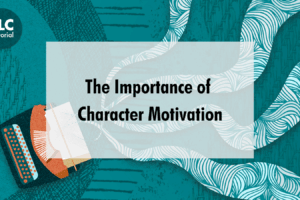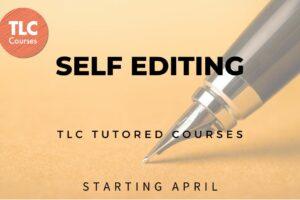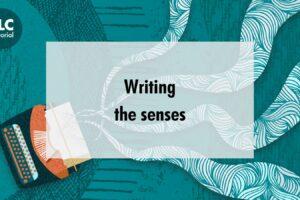Strong and clear character motivation is the thread that runs through the beats of your plot to make them a comprehensible storyline, rather than feeling like a series of inconsequential events. Recently, in my work as an editor for TLC and also as a dramaturg on stage plays, I have come to realise just how crucial character motivation is to the overall success of a story. Knowing why a character is making certain decisions, thus moving the plot in a certain direction, makes a story satisfying for a reader and ultimately makes them more invested.
What is Character Motivation?
Your character’s motivation is the ‘I want’ and also the ‘why’ behind their actions. Knowing what your character wants, or doesn’t want, is key to making their journey in the book believable. It’s the reasoning for why they do what they do. But often this motivation can become lost, or muddled, or perhaps it’s never clear from the outset. This is why it’s important to have a clear understanding of your character’s motivation – their ‘I want’ – before you start writing. Even if you aren’t a meticulous planner, having a sense of your character’s journey in the plot, what they want at the start and how this changes over time, will make your life a lot easier. It also ensures you won’t fall prey to an aimless, wandering protagonist that the reader isn’t invested in.
To be clear, your character doesn’t have to be a motivated, action-driven type in order to have clear motivation. Their motivation might be ‘I want to coast through life’ or ‘I want to give up.’ These are more passive wants, but the key is that they still have a motivation – even if this motivation is to give up. Knowing this, means you will structure your plot in such a way that this motivation and thus your character’s inner world, is clear to the reader.
Why Character Motivation is important
Character motivation affects many aspects of story craft – not just character development.
Character development: Each character in your book should be properly developed in your mind, including their internal and external journey in the book, their background, their place in the world and their motivation in the story. You might be the type of writer who wants to create a whole factfile for each of your characters so you know them inside and out. I like to spend as much time developing a character as they appear in the book. So I’ll spend the most time on the protagonists and the least time on a supporting character who only appears very briefly (I wouldn’t spend hours thinking of the motivation of a character with one line, for example!) Sometimes, establishing a character’s main motivation is a useful tool in building other aspects of their identity. For example, if I know my character’s motivation is to be famous, this might inform me that they are ambitious, or that perhaps they felt overlooked as a child, or that they are a people-person. In this way, other character development can grow from motivation.
Structure & Plot: Clear character motivation justifies a character’s actions in the plot. Without it, events in the book feel random and unrelated (which may work for an experimental novel, but not if you’re looking to publish something commercially viable!) A character without a clear motivation, moving from event to event without a clear reason why, results in poor story structure and readability.
Pace: A character without clear motivation, lacks momentum in a story and can make the pace drag. Conversely, if you as a writer aren’t sure of your character’s motivation and just have them arbitrarily moving through a series of events without meaning, the pace can become rushed. Clear character motivation that develops along with the events of the story create a well-paced narrative.
Case Study
Let’s consider how a character’s motivation might change throughout a classic five act structure, in order to give the story a clear narrative arc, proper character development and a satisfying payoff.
Author A has written a YA book about a teenage girl with superpowers. However, the teenage girl doesn’t want superpowers, she just wants to fit in and be ‘normal’. This is her motivation at the start of the book.
Set up: Teenage girl who feels like an outsider at school, struggling to find her place in the world.
Motivation: I want to fit in.
Inciting Incident: She discovers she has superpowers and is destined to save the world.
Motivation: But I want to fit in!
N.B. The inciting incident can often be where a character’s motivation changes or develops.
Rising Action: She struggles to hide her superpowers at school whilst battling bad guys and learning to harness her powers.
Motivation: I just want to fit in.
Climax: Someone close to her is captured by the bad guys and she realises she must embrace her powers in order to save them and save the world.
Motivation: I want to save my friend.
Resolution: She saves the day and embraces her new superhero status, but the work isn’t done and there are more bad guys out there to beat!
Motivation: I want to be a hero.
Try doing this exercise with your protagonist to start with, and ensure that at each beat of the story their motivation aligns with their actions in the plot. You can do this for your antagonist and other significant characters too. If there isn’t a clear correlation, then it could be that your character’s motivation isn’t fully realised or they are acting in a way that feels jarring and implausible to a reader.
Overall, a well developed and clear character motivation is the hook that draws the reader in to actually care about your character’s journey in the book. Without it, it’s all too easy for a reader to give up on the story and add to their DNF pile. So, when you’re working on your next project, make sure character motivation is a key part of your planning.
Annabelle Sami is a children’s author and Editor for TLC. You can book her for one of our Editorial Services now.








